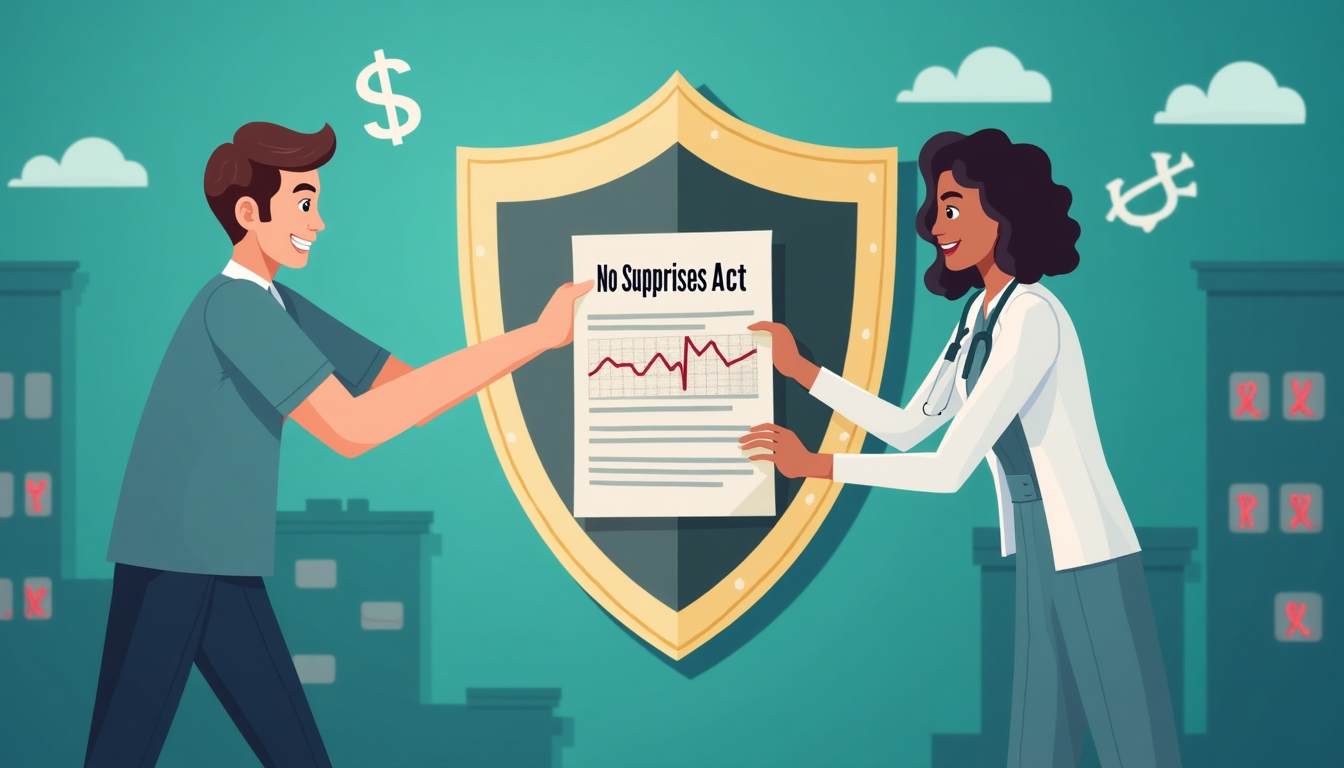How to Fight Surprise Medical Bills Under the No Surprises Act: A Patient's Guide
"Financial fear should never stand between you and the care you deserve." – Sarah Johnson, MSW, CPA
The Hidden Crisis of Medical Billing
You did everything right. You confirmed your insurance, chose an in-network hospital, and focused on recovery. Then the bill arrives – $2,300 for an out-of-network radiologist you never met. Your chest tightens. How is this legal?
You’re not alone. 27% of insured adults received surprise medical bills in 2023 despite having coverage[1]. Medical debt now exceeds $220 billion[2], often hitting during emergencies, hospital stays, or mental health crises.
While the No Surprises Act (NSA) offers protections, 84% of payment disputes still favor providers[3][FACT CHECK?]. As both a clinician and policy advocate, I’ve seen how financial stress worsens health outcomes. Let’s turn frustration into action.
Your Rights Under the No Surprises Act
What’s Covered
The NSA bans balance billing (charges beyond your copay/deductible) for:
- Emergency care at any facility
- Non-emergency care at in-network hospitals
- Air ambulance services
Real Example: Maria’s in-network surgery led to a $1,800 anesthesiology bill. Using NSA protections, she successfully disputed the charge.
Key Limitations
- Excludes ground ambulances
- Requires providers to disclose network status
- Allows $25–400 fines for violations[4]
3 Steps to Avoid Surprise Bills
Step 1: Prepare Before Care
- Double-Check Networks: Call both insurer AND provider
- Request Good Faith Estimates: Legally required for uninsured/scheduled care[5]
- Save Confirmations: Screenshot insurer agreements
Pro Tip: Rural patients – ask hospitals about their “NSA compliance officer” to address staffing gaps[6].
Step 2: Advocate During Care
Keep this script on your phone:
“I only consent to in-network care unless medically necessary. Please provide written confirmation of all providers’ network status.”
Avoid signing “Surprise Billing Protection Forms” without full understanding.
Step 3: Audit Bills After Care
- Compare Explanation of Benefits (EOB) to final bills
- Flag charges exceeding your deductible/copay
- Dispute using this hierarchy:
- Provider billing department
- Insurer appeals
- Federal portal at CMS.gov
Success Story: James avoided $3,200 in ER fees by proving the hospital violated NSA signage rules[7].
How to Dispute Charges Effectively
When to Fight vs. Negotiate
Fight If:
- Services were emergency/unknowingly out-of-network
- Bill lacks NSA-required disclosures
Negotiate If:
- Charges are accurate but unaffordable
- Uninsured (many states mandate discounts)
The Arbitration Process Simplified
- File within 120 days of billing
- Pay $50–200 filing fee (refundable if you win)
- Submit:
- EOB documents
- Provider contracts
- Local service rate comparisons
Key Insight: Recent data shows providers won 84% of disputes[3]. Focus on insurer undervaluation in your claim.
Special Situations
Mental Health Coverage Gaps
The NSA doesn’t override mental health limits. If denied care:
- Cite the Mental Health Parity Act
- Request “comparable physical health benefit” examples
- Contact state insurance commissioners
Rural & High-Deductible Challenges
- Rural Patients: 40% face out-of-network ER bills vs. 22% urban[6]
- High-Deductible Plans: Average $1,500+ deductibles leave many paying upfront[8]
Solution: Ask hospitals about financial assistance programs – available to insured patients in 28 states[9].
Free Government Resources
- NSA Rights Checklist: CMS.gov
- State Assistance Programs: HealthCare.gov
- Dispute Templates: HHS.gov
Conclusion: Protect Your Health and Wallet
While the No Surprises Act has gaps – from ground ambulance exclusions to uneven enforcement – knowledge is your best defense.
Remember:
- Emergency care can’t be balance billed
- Good Faith Estimates are legally required
- Persistence pays in disputes
Bookmark official resources and advocate confidently. Your health deserves protection from financial harm.
References
[1] Kaiser Family Foundation. (2023). 2023 Health Insurance Survey. kff.org
[2] Consumer Financial Protection Bureau. (2023). Medical Debt Burden in the US. consumerfinance.gov
[3] Centers for Medicare & Medicaid Services. (2024). No Surprises Act Implementation Report. cms.gov
[4] Department of Health and Human Services. (2023). No Surprises Act Enforcement. hhs.gov
[5] HealthCare.gov. (2024). Good Faith Estimates. healthcare.gov
[6] Agency for Healthcare Research and Quality. (2023). Rural Healthcare Access. ahrq.gov
[7] Centers for Medicare & Medicaid Services. (2023). NSA Case Studies. cms.gov
[8] Kaiser Family Foundation. (2024). Employer Health Benefits Survey. kff.org
[9] National Conference of State Legislatures. (2023). State Medical Debt Laws. ncsl.org




